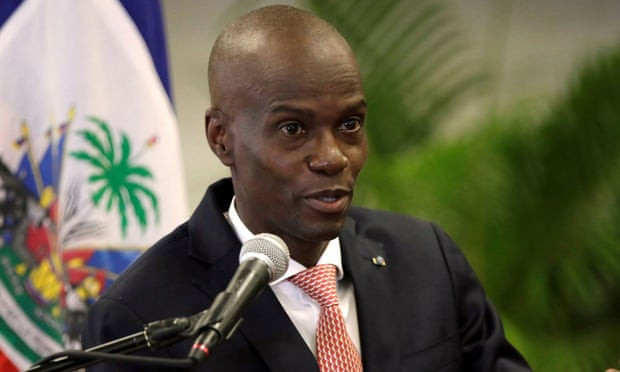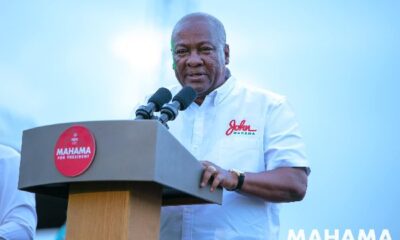Published
4 years agoon
By
Joe Pee
President of Haiti, Jovenel Moïse has been assassinated in his private residence by a group of armed men.
The country’s interim Prime Minister, Claude Joseph said a group of unidentified individuals attacked the private resident of Moise and shot him dead. First Lady Martine Moïse is hospitalized following the attack early Wednesday, July 7.
Speaking on a local radio station, the prime minister said the attack was carried out by an “armed commando group” that included foreign elements.
Joseph said in a statement quoted in media outlets;
“Around one o’clock in the morning, during the night of Tuesday 6th to Wednesday 7th of July 2021, a group of unidentified individuals, including some speaking Spanish, attacked the private residence of the president and fatally injured the head of state.”
The Prime Minister added that “all measures are being taken to guarantee the continuity of the state and to protect the nation.”
The attack occurred amid a rising wave of politically linked violence in the impoverished Caribbean nation. The nation of more than 11 million people had grown increasingly unstable and disgruntled under Moïse’s rule.
Its economic, political and social woes have deepened, with gang violence spiking heavily in the capital of Port-au-Prince, inflation spiraling and food and fuel becoming scarcer at times in a country where 60% of the population makes less than $2 a day. These troubles come as Haiti still tries to recover from the devastating 2010 earthquake and Hurricane Matthew that struck in 2016.
53-year-old Moïse had been ruling by decree for more than two years after the country failed to hold elections, which led to Parliament being dissolved. Opposition leaders have accused him of seeking to increase his power, including approving a decree that limited the powers of a court that audits government contracts and another that created an intelligence agency that answers only to the president.
While Haiti’s opposition claims Moïse should have stepped down on 7 February to coincide with the fifth anniversary of 2015 elections that were cancelled and then re-run a year later because of allegations of fraud, Moïse and his supporters rejected that argument, saying he only took power in 2017 after winning the re-run.
Haiti was scheduled to hold general elections later this year.


Mahama Vows to Usher in Era of Fiscal Discipline and National Renewal


Elon Musk changes his name to Kekius Maximus on X


Mahama Calls for Unity Among Political Parties to Drive Ghana’s Renaissance


President-elect Mahama Rallies NDC Supporters: “Pray Harder for Ghana’s Transformation”


Ghana’s Economy on the Rise: President Akufo-Addo Highlights Robust Growth in 2024


EC Declares Final Verdict in Dome Kwabenya: Faustina Akurugu Elikplim Clinches Victory Amid Controversy


Thousands displaced as post-election unrest grips Mozambique


Former Black Stars Player Samuel Inkoom Faces Court Over Alleged Visa Fraud


Stonebwoy and Samini Mend Ties with Emotional Reunion at 3FM All White Party

























